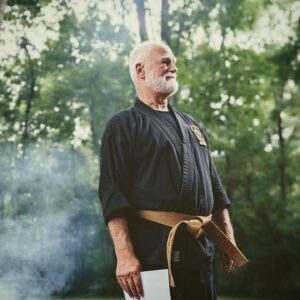“The essence of all religions deals with addressing basic human problems. As long as human beings experience the sufferings of birth, disease, old age, and death, there is no doubt Buddhism is a relevant spiritual system. The variety of spiritual teachings found in human society is necessary and useful, and among Westerners, no doubt there are people who will find Buddhism perfect for their requirements.” (from HH Dalai Lama)
We accept and revere as our standard (“take refuge in”) the Three Jewels of:
Buddha as ideal of awakened potential
Dharma as teachings and practice
Sangha as community of mentors and guides
“We pursue awakening to become Buddhas by studying Buddhism with practicing Buddhists“
Embracing the Buddhas’ (“Enlightened Ones of all times and places”) example of Great Wisdom (maha-prajna) and Great Compassion (maha-karuna), we accept that the purpose of life is to:
Develop spiritual intelligence through study, practice, and meditation, leading to the direct experience of the true nature of reality…
Develop loving compassion for all beings through working for their benefit, as a result of our spiritual insights into the nature of reality…
…and then through interaction of our intelligence and compassion,
Develop wisdom leading to awakening to Ultimate Truth
We accept, according to the teaching of the Buddha, the Noble Ones’ Four Truths of:
Dukkha – “Every life experiences anguish and disappointment and suffering”
Arising of Dukkha – “The experience of suffering arises when we misunderstand the true nature of reality and desire the laws of life to be different than they are”
Cessation of Dukkha – “It is possible to overcome suffering by means of the powers of cause and effect”
Path Leading to the Cessation of Dukkha – “We can employ the power of cause and effect by following the Noble Ones’ 8-fold path of personal development as the basis for living in alignment with Highest Truth”
We accept, according to the teaching of the Buddha, that all things (dharmas) are impermanent (anitya), without independent self (anatma), and of confusing personal interpretation that leads to suffering (dukkha), which can be transcended to realize complete permanent freedom from suffering (nirvana)
We accept the universal law of cause and effect as taught in the 12-cycle explanation of Dependent Origination (pratiitya-samutpada), and the reality of inherent enlightenment at the core of all beings (hongaku) obscured by the pull of ignorance (avidya)
We accept as the most effective initial practices leading to awakening the Thirty-Seven Qualities Conducive to Enlightenment (Sanskrit bodhipaksa-dharma; Japanese san-ju-shichi do-bon), as taught by the Buddha as the Fundamental Vehicle
We accept as the most noble and heroic ideal to follow towards breakthrough to the realized state of a perfectly fully enlightened Buddha (Samyak-sam-buddha) the path of the bodhisattva who strives to encourage the awakening of all, as taught by the Buddha as the Universal Vehicle
We accept as the most direct path to fullest enlightenment the cultivation of the experience of union with the influence of the body, speech, mind, qualities, and activities of all Buddhas as our highest inspiration and ultimately our highest teacher, as taught by the Buddha as the Diamond Vehicle
We acknowledge that in different countries and cultures of the world there are differing traditions with regard to the ways of life of members of the Buddhist order, popular Buddhist beliefs and practices, rites and ceremonies, teacher lineages and affiliations, customs, clothes, diet, and habits, and accept that these varying external forms and expressions do not in any way alter the truth of the essential teachings of Buddhism
“The religion of the future will be a cosmic religion. It should transcend a personal God and avoid dogmas and theology. Covering both the natural and the spiritual, it should be based on a religious sense arising from the experience of all things natural and spiritual as a meaningful unity. Buddhism answers this description. If there is any religion that would cope with modern scientific needs, it would be Buddhism.”
Albert Einstein ("Albert Einstein: The Human Side" edited by Helen Dukas and Banesh Hoffman, Princeton University Press, 1954)